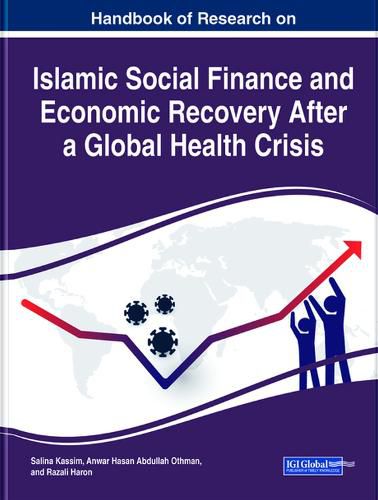Readings Newsletter
Become a Readings Member to make your shopping experience even easier.
Sign in or sign up for free!
You’re not far away from qualifying for FREE standard shipping within Australia
You’ve qualified for FREE standard shipping within Australia
The cart is loading…






This title is printed to order. This book may have been self-published. If so, we cannot guarantee the quality of the content. In the main most books will have gone through the editing process however some may not. We therefore suggest that you be aware of this before ordering this book. If in doubt check either the author or publisher’s details as we are unable to accept any returns unless they are faulty. Please contact us if you have any questions.
Social financial reporting as an economic tool presents the firm as a socio-economic unit with empowered social capital to enable a sustainable economic solution, particularly in response to the COVID-19 pandemic. Islamic social finance (ISF) is a corporate social responsibility initiative in the form of humanitarian and socio-development programs by Islamic financial institutions and Shariah-compliant corporations. ISF is applied through various methods and tools that structure based on Islamic Sharia Law. For example, Islamic social finance tools would either be philanthropic, involving activities such as zakat (obligatory alms-giving), Sadaqah (voluntary alms-giving/charity), and waqf (endowment) or ta'awun (cooperation-based activities), which include Qardh al-hasan (benevolent loan) and kafala (guarantee). Thus, Islamic social finance instruments play a vital role in alleviating poverty and addressing socio-economic issues such as illiteracy, unemployment, malnutrition, and health issues. As such, integrated ISF reporting can empower sustainable economic development and lead to recovery. The Handbook of Research on Islamic Social Finance and Economic Recovery After a Global Health Crisis provides insights on the role of Islamic social finance in supporting and facilitating economic recovery in the post-COVID-19 era as well as reducing poverty and addressing the challenges of socio-economic problems such as education, unemployment, malnutrition, and health issues. This book is ideally intended for practitioners, stakeholders, researchers, academicians, and students who are interested in improving their understanding on the role of Islamic social finance theoretically and empirically in solving the issue of poverty and developing excellent funds management to achieve economic empowerment with better environmental sustainability.
$9.00 standard shipping within Australia
FREE standard shipping within Australia for orders over $100.00
Express & International shipping calculated at checkout
This title is printed to order. This book may have been self-published. If so, we cannot guarantee the quality of the content. In the main most books will have gone through the editing process however some may not. We therefore suggest that you be aware of this before ordering this book. If in doubt check either the author or publisher’s details as we are unable to accept any returns unless they are faulty. Please contact us if you have any questions.
Social financial reporting as an economic tool presents the firm as a socio-economic unit with empowered social capital to enable a sustainable economic solution, particularly in response to the COVID-19 pandemic. Islamic social finance (ISF) is a corporate social responsibility initiative in the form of humanitarian and socio-development programs by Islamic financial institutions and Shariah-compliant corporations. ISF is applied through various methods and tools that structure based on Islamic Sharia Law. For example, Islamic social finance tools would either be philanthropic, involving activities such as zakat (obligatory alms-giving), Sadaqah (voluntary alms-giving/charity), and waqf (endowment) or ta'awun (cooperation-based activities), which include Qardh al-hasan (benevolent loan) and kafala (guarantee). Thus, Islamic social finance instruments play a vital role in alleviating poverty and addressing socio-economic issues such as illiteracy, unemployment, malnutrition, and health issues. As such, integrated ISF reporting can empower sustainable economic development and lead to recovery. The Handbook of Research on Islamic Social Finance and Economic Recovery After a Global Health Crisis provides insights on the role of Islamic social finance in supporting and facilitating economic recovery in the post-COVID-19 era as well as reducing poverty and addressing the challenges of socio-economic problems such as education, unemployment, malnutrition, and health issues. This book is ideally intended for practitioners, stakeholders, researchers, academicians, and students who are interested in improving their understanding on the role of Islamic social finance theoretically and empirically in solving the issue of poverty and developing excellent funds management to achieve economic empowerment with better environmental sustainability.